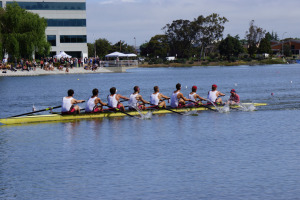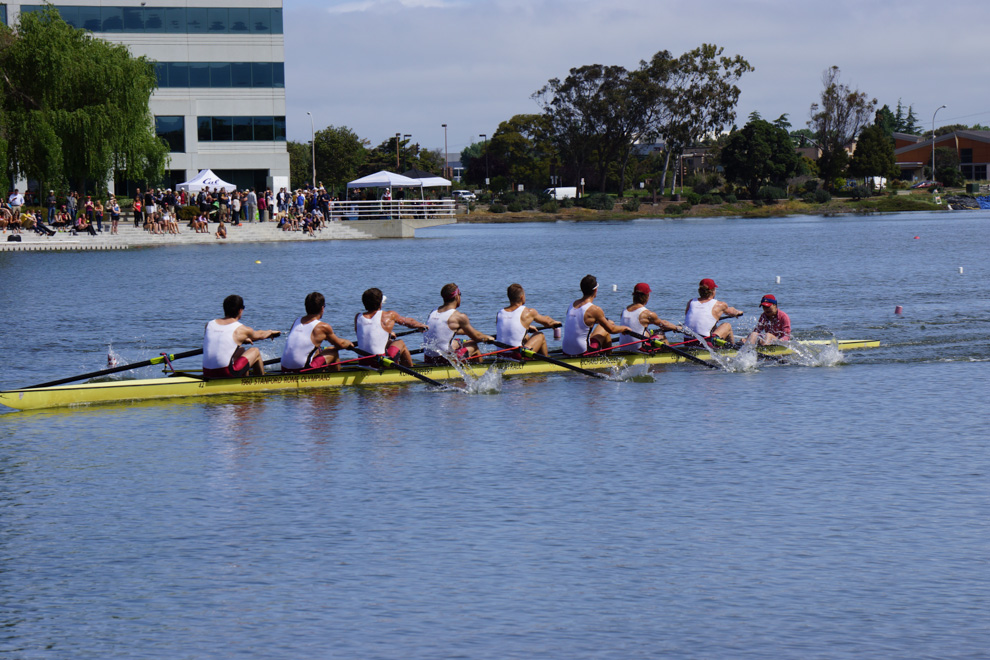The Stanford men’s rowing team demonstrated it has a bright future as it concluded its fall season last Sunday.
Racing in the Head of the American regatta outside of Sacramento, Stanford performed strongly with victories in open two-, four- and eight-person races. Many of its other entries also placed highly, with its alternate four and eight both placing second, and two Stanford singles landing in the top seven in the most competitive open divisions.

“[Our performance] definitely helped build morale for the team,” said sophomore Ryan Hails, who rowed on the winning eight. “It’s tough to go until the spring and not have something tangible to grab onto. We’ve changed around our training a little bit, and this gives us something in the fall to say ‘what we’re doing is working.’ I think everybody is really happy with it.”
These strong finishes came after a somewhat disappointing performance at the Head of the Charles on Oct. 19, where the men came in ninth in the open fours. The team got off to a quick start, but gradually lost steam as an abnormally strong Massachusetts headwind dragged the race out. Stanford had been the top collegiate team in the highly competitive race both of the last two seasons (wining it outright in 2012), but now faces the daunting task of replacing recent star graduates Austin Hack and Will Robins.
So far, Stanford has been counting on its younger recruits to fill in some of the gaps left by these departures. Sophomore Charlie Walker and freshman Allen Reitz both made their varsity debuts for the team in Cambridge, and countless other underclassmen were given the nod last weekend in various different races.
“We have a really [strong] freshman class that just came in,” said sophomore coxswain Ardsley Sanders, another member of the top-placing eight in the American.
“They’ve been having their struggles like any other class but they’re pushing through it pretty well,” Hails added.
Stanford crew will need these younger members to pay dividends quickly if it wishes to achieve its goal of finishing in the top six boats in the Intercollegiate Rowing Association National Championship this spring. Stanford finished just 11th in the regatta last year, and will need to perform at its best to move into the top flight. Local rivals Cal and Washington will also be vying for these spots, so Stanford should be able to work on their times against them.
In the meantime, the team hopes to focus on conditioning and building strength this winter to prepare for its upcoming competitions. With racing mostly suspended due to colder temperatures back east, Stanford hopes to hone in on these areas so that it can be fully prepared for the eventful spring season.
“Winter is definitely the toughest…because it’s just us working out on land [in a limited amount of time],” said Hails. “It’s really a lot of training so that we’re able to go into the spring and be fit enough and strong enough to work on our technique and boat speed when we have more time in the water.”
Contact Andrew Mather at amather ‘at’ stanford.edu.
